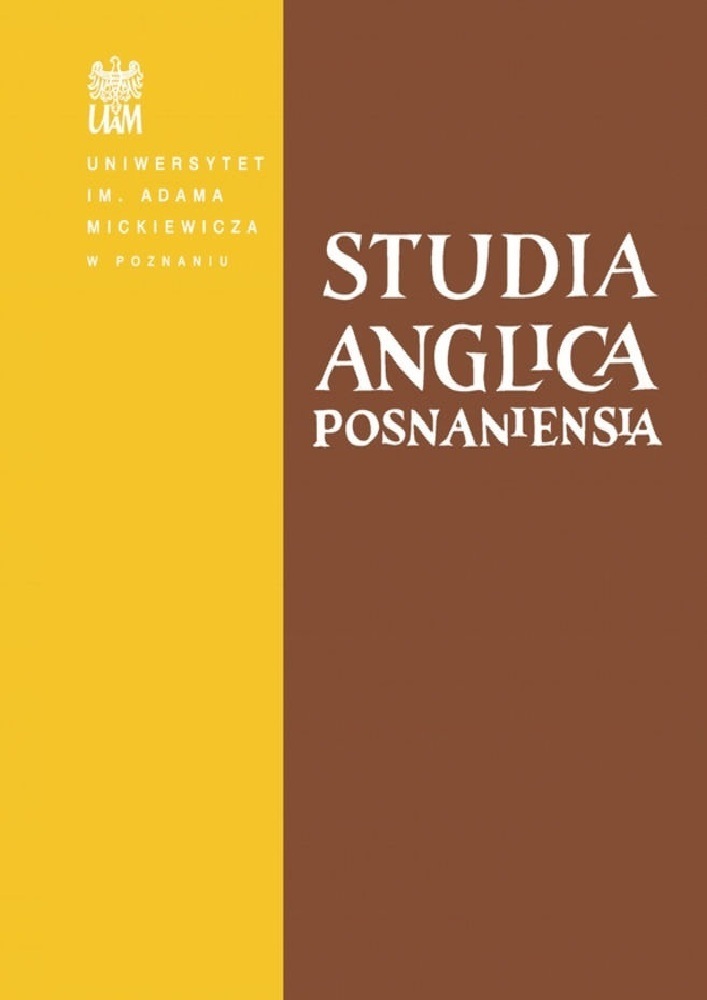Abstract
The present article is a critical rereading of Caryl Phillips’s latest novel The Lost Child (2015). It looks at the text as both a literary comment on the crisis of today’s global capitalism and as an acute socio-economic analysis of the crisis’ roots and effects. It is being argued that, by placing Wuthering Heights (1847) as an intertext for his contemporary novel and by linking the figure of Heathcliff with African slavery and contemporary poverty, Caryl Phillips aims to emphasise the affinity between the socio-economic conditioning of the nineteenth- and twentieth-century England, as well as between the contemporary and historical experience of economic marginalisation. Thus, he shows global capitalism as a universal experience of long modernity and asks some vital questions about its shape and its future. The following analysis, in line with recent scholarship in the field of postcolonial studies, combines postcolonial criticism with socioeconomic theories and argues that the novel deserves a place in the ongoing debates on the condition of the global economy, social (in)justice and (in)equality, which nowadays become part of the postcolonial literary scholarship.
References
Brontë, Emily. 1992 [1847]. Wuthering Heights. London: Wordsworth’s Classics.
Phillips, Caryl. 2015. The Lost Child. London: Oneworld Publications.
Akerlof, George A. & Rachel E. Kranton. 2010. Identity economics: How our identities shape our work, wages, and well-being. Princeton, NJ: Princeton University Press.
Badger, Emily. 2015. Black poverty differs from white poverty. The Washington Post. https://www.washingtonpost.com/news/wonk/wp/2015/08/12/black-poverty-differs-from-white-poverty/?noredirect=on&utm_term=.7609de4d062d (accessed on 3 May 2018).
Baucom, Ian. 2005. Specters of the Atlantic: Finance capital, slavery, and the philosophy of history. New York, NY: Duke University Press.
Bauman, Zygmunt. 2007. Liquid times: Living in the age of uncertainty. Cambridge: Polity.
Buonnano, Giovanna. 2017. Exploring literary voices in The Lost Child. Commonwealth Essays and Studies 40(1). 95–104.
Dorling, Danny. 2015. Injustice: Why social inequality still persists. Chicago, IL: Policy Press.
Eagleton, Terry. 2005 [1975]. Myths of power: A Marxist study of the Brontës. London: Palgrave MacMillan.
Gilroy, Paul. 1993. The Black Atlantic. Verso: London.
Heuman, Gad. 2014 [2006]. The Caribbean: A brief history. London: Bloomsbury.
Jütte, Robert. 1994. Poverty and deviance in Early Modern Europe. Cambridge: Cambridge University Press.
Kennedy, Melissa. 2017. Narratives of inequality: Postcolonial literary economics. London: Palgrave MacMillan.
Lazarus, Neil. 2011. Cosmopolitanism and the specificity of the local in world literature. Journal of Commonwealth Literature 46(1). 119–137. DOI: 10.1177/0021989410396037
Ledent, Bénédicte. 1996. Is counter-discursive criticism obsolescent? Intertextuality in Caryl Phillips’s Higher Ground. In Hena Maes-Jelinek, Gordon Collier & Geoffrey V. Davis (eds.), A talent(ed) digger: Creations, cameos, and essays in honour of Anna Rutherford, 301–308. Amsterdam: Rodopi.
Loomba, Ania. 2005. Colonialism/Postcolonialism. London: Routledge.
Nasta, Susheila (ed.). 2000. Reading the ‘new’ literatures in a postcolonial era. Cambridge: D.S. Brewer.
Ramsey-Kurz, Helga & Melissa Kennedy (eds). 2017. Uncommon wealths in postcolonial fiction. Leiden: Brill.
Robinson, William I. 2014. Global capitalism and the crisis of humanity. Cambridge: Cambridge University Press. DOI: 10.1017/CBO9781107590250
Said, Edward. 1993. Culture and imperialism. London: Vintage.
Schatteman, Renée T. 2009. Introduction. In Renée T. Schatteman (ed.), Conversations with Caryl Phillips, ix–xix. Jackson, MS: The University Press of Mississippi.
Sedláček, Tomáš. 2011. Economics of good and evil: The quest for economic meaning from Gilgamesh to Wall Street. Oxford: Oxford University Press.
Smith, Christian & Katherine Sorrell. 2014. On social solidarity. In Vincent Jeffries (ed.), The Palgrave handbook of altruism, morality, and social solidarity, 219–247. London: Palgrave MacMillan. DOI: 10.1057/9781137391865_10
Williams, Eric. 1944. Capitalism and slavery. Chapel Hill, NC: The University of North Carolina Press.
